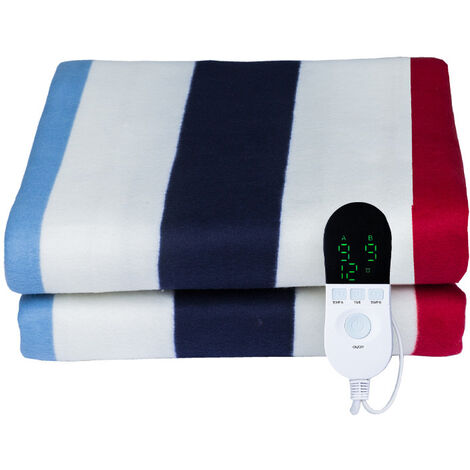
Coperta elettrica riscaldata usb 75x120cm, ispessimento scialle elettrico riscaldato in pile | Fruugo IT

BYBEST Coperta Calda elettrica Tappetino riscaldante Elettrico indossabile Coperta Calda Invernale Corpo Spalla Collo Vita Schiena Tappetino Termico per Massaggio Caldo 24x36 Pollici Regalo : Amazon.it: Salute e cura della persona

Ricarica USB coperta riscaldata coperta riscaldante elettrica coperta riscaldante calda invernale portatile Super accogliente per divano divano casa - AliExpress

BYBEST coperta calda elettrica Coperta elettrica Doppia/singola Coperta Riscaldata In Morbido Pile Coperta Materasso Riscaldato Con Timer 3-4 Impostazioni di Calore di Controllo regalo : Amazon.it: Casa e cucina

Coperta elettrica USB 5V scialle riscaldato multifunzionale il corpo invernale mantiene la coperta calda alimentata da coperte riscaldanti Power Bank Office - AliExpress

Coperta riscaldante elettrica multifunzionale Piccola coperta riscaldante elettrica Ufficio Riscaldatore domestico Scialle Pancia calda Gamba calda Coperta per il corpo caldo | Fruugo IT

RELAX4LIFE Coperta Elettrica Riscaldata, Coperta Termica Elettrica Singola/Matrimoniale, Lavabile in Lavatrice, 4 Temperature Regolabili e

Coperta elettrica USB riscaldamento scialle Pad lavabile coperta più calda inverno riscalda getta 5V/2A tensione

BYBEST coperta calda elettrica Coperta riscaldante Letto singolo Coperta riscaldata in morbido pile grigio Coperta riscaldata lavabile con telecomando 150 X 100 cm/59,05 X 39,3 pollici regalo : Amazon.it: Casa e cucina

Coperta Elettrica 5V Coperta Elettrica Riscaldatore USB Coperta Riscaldata Inverno Scaldacorpo Scialle Coperta Calda Termostato Coperta Riscaldamento Elettrico Casa Q231130 Da 6,4 € | DHgate

Coperta termica elettrica USB può lavare coperta calda 3 coperta coccolosa a temperatura regolabile Coperta elettrica per home office | Fruugo IT

Inverno casa coperta elettrica rossa riscaldatore rapido scaldino singolo corpo coperta riscaldata termostato riscaldamento elettrico coperta













